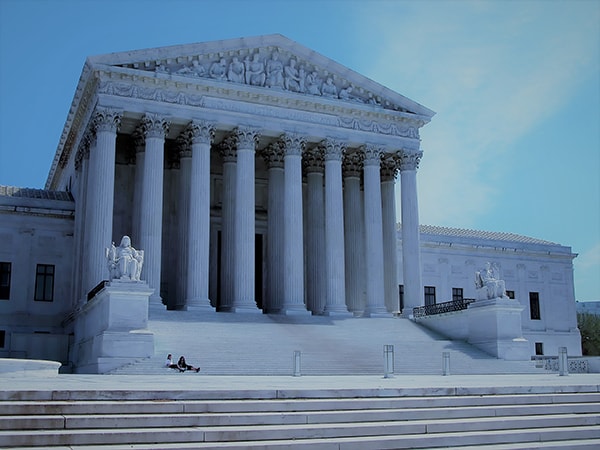Top Federal Appeal Lawyers: Professional Legal Assistance for Your Federal Appeal
Top Federal Appeal Lawyers: Professional Legal Assistance for Your Federal Appeal
Blog Article
Debunking the Refine of Federal Appeals: What You Need to Know
Navigating the elaborate realm of government allures can usually look like traversing uncharted waters for those not familiar with the process. Comprehending the subtleties of appellate court territory, the details of submitting a notification of charm, providing a compelling quick, and making an influential dental debate are vital components that can significantly impact the outcome of an instance. By deciphering the layers of complexity bordering federal appeals, people can obtain a more clear understanding right into the systems that regulate this important phase of the legal system.
Comprehending Federal Appeals Process
Exploring the detailed world of the federal appeals process introduces a methodical and structured trip with the judicial system. Federal charms function as an essential mechanism for assessing choices made by lower courts. Understanding this procedure is necessary for any individual associated with legal process at the government level.
The procedure normally begins with a party disappointed with a lower court's judgment submitting a notice of allure. This sets off a review by a greater court, where a panel of judges assesses the lawful arguments offered by both celebrations. Briefs outlining the lawful reasoning behind each event's setting are sent, and oral arguments might be heard to clarify intricate issues.
The appellate court's decision is based on a detailed examination of the lower court's proceedings and the arguments presented. The judges do not focus but reexamine facts on whether legal errors happened that impacted the lower court's decision. Once the appellate court reaches a decision, it can verify, reverse, remand, or customize the lower court's ruling, offering clarity and finality to the legal dispute. Recognizing this procedure is essential for browsing the complexities of federal appeals effectively.
Appellate Court Jurisdiction Discussed
Appellate court jurisdiction refers to the range of instances that a specific appellate court has the power to review and make a decision upon. Unlike trial courts that listen to instances for the initial time, appellate courts are limited to examining decisions made by lower courts.
Appellate courts have territory over particular kinds of cases, normally those involving legal errors, step-by-step concerns, or questions of regulation as opposed to accurate disagreements. The jurisdiction of appellate courts is typically laid out in statutes and laws that regulate the court system. Recognizing appellate court jurisdiction is vital for events involved in the charms procedure as it establishes whether a case is eligible for evaluation and the level to which the appellate court can interfere in the lower court's decision.
Filing a Notification of Allure
The first step in commencing the federal charms procedure entails submitting a Notice of Charm with the proper appellate court. This crucial document formally notifies the court and the other celebrations included in the instance that the appealing celebration means to look for an evaluation of the reduced court's choice. Filing a Notification of Charm is a stringent procedural demand that sets the appellate procedure in informative post activity.
When preparing the Notice of Charm, it is important to guarantee conformity with the particular regulations and standards of the appropriate appellate court. federal appeal lawyers. The file should normally consist of info such as the situation name, the lower court's name, the date of the judgment being appealed, and a succinct declaration suggesting the grounds for the appeal

Instruction and Oral Disagreement
In the appellate process, providing written briefs and taking part in dental arguments play essential duties in promoting for the appealing event's position before the appellate court. Briefs are thorough legal papers that lay out the parties' disagreements, lawful authorities, and analysis supporting their placements. These created submissions supply the court with a comprehensive understanding of the truths of the instance, the relevant legislation, and why the appealing event thinks the lower court's decision must be rescinded.
Adhering to the submission and evaluation of the briefs, dental debates supply the parties a chance to additional clarify their settings, resolve any concerns the appellate courts might have, and emphasize bottom lines from their written briefs. Oral disagreements are an opportunity for the lawyers to persuade the judges with verbal advocacy and responses to queries from the bench.
Both the composed briefs and dental disagreements are critical parts of the appellate procedure, permitting events to offer their instance extensively and compellingly prior to the appellate court. - federal appeal lawyers
Receiving the Appellate Court Decision
The appellate court's choice is usually supplied in a composed style and outlines the court's final thoughts on the lawful issues provided, the thinking behind their decision, and the judgment made. The time structure for receiving the appellate court's decision can differ, yet courts strive to offer prompt resolutions. Whether the appellate court verifies, reverses, or remands the lower court's choice, recognizing the implications of the ruling is critical for all parties included in the appellate procedure.
Verdict
Comprehending the appellate court territory, filing a notice of appeal, preparing briefs, and presenting oral arguments are all vital components of this process. Inevitably, obtaining the appellate court choice can supply clearness and resolution to legal conflicts.
As we progress from understanding the government allures procedure to exploring the complexities of appellate court jurisdiction, a fundamental facet comes to light regarding the authority and limits of these greater courts in the lawful landscape. Appellate court jurisdiction refers to the scope of instances that a certain appellate court has the power to choose and review upon. Unlike test courts that listen to situations for the first time, appellate courts are restricted to examining decisions made by reduced courts. Comprehending appellate court jurisdiction is crucial for events entailed in the appeals procedure as it figures out whether a situation is eligible for testimonial and the extent to which the appellate court can interfere in the lower court's decision.

Report this page